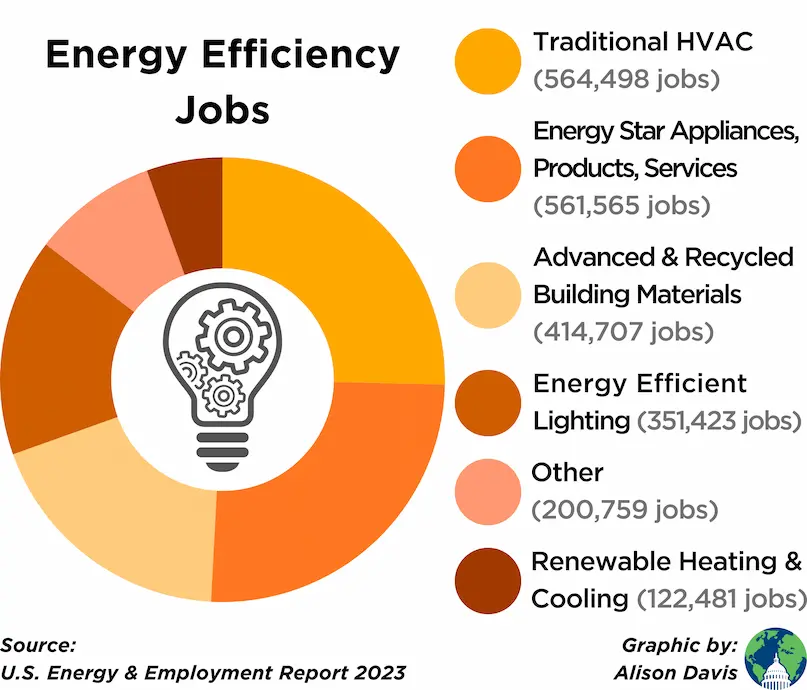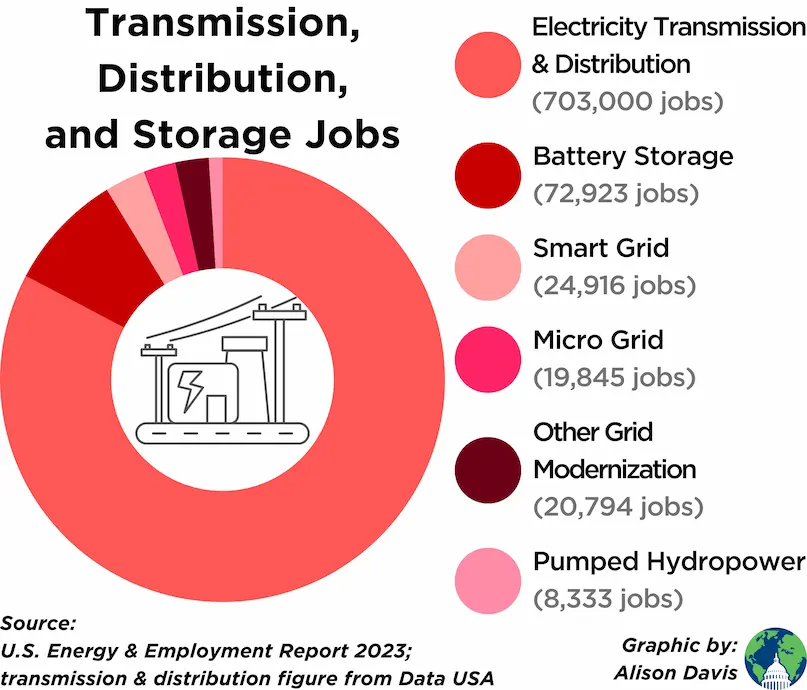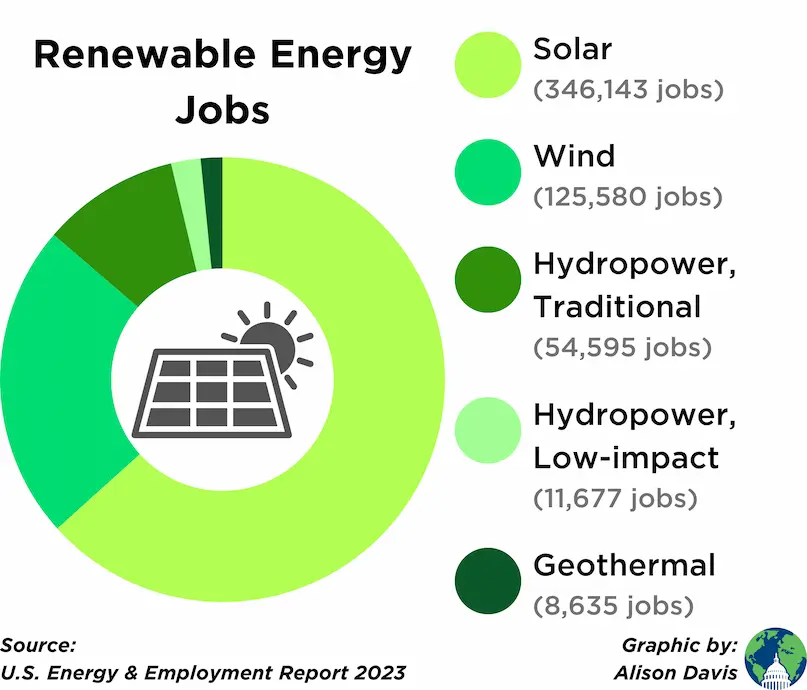The Rise of Green Collar Jobs: Working to Save the Climate
- Emil Jersling
- Jul 22, 2024
- 11 min read
Updated: Sep 15, 2024
Fixing our planet is complex.
Whose job is it anyway?
There can be many reasons to consider a green collar job. This article aims to help you figure out if you should consider it, what roles there are, how to build the skills, and find opportunities to "join the pros" in protecting our climate.

A few months ago I joined a passionate group of volunteers and climate change curious to learn, and unlearn, what is causing rising global temperatures. It was organized by Climate Fresk Singapore. The workshop was engaging and informative and I was lucky to spend time with the team until late evening over dinner and drinks.
It struck me that we all had different backgrounds bringing diverse skills and perspectives. The organizer, Dan Duong, stressed that ecological systems are complex. After over a decade of study, the positive and negative impact of solutions are still hard to fully grasp. We're in a race against time to discover and support the right solutions to save what makes our tiny planet habitable for 8.2BN hungry, hot, curious, and increasingly opinionated people (my words, not Dan's).
Motivations for entering the industry
I assume you are not a green collar worker. But you're thinking: Should I use my time, energy and skills to keep our planet habitable? If you believe the news, your skills are needed and now is the time to act.
Possible arguments:
Your current career path is negatively impacted by AI and/or climate change.
You are convinced climate change is real and want to deliver impact.
You see an opportunity to further your career in a booming industry.
Let's look at each factor in turn.
Current career is impacted by AI or climate change
Last year the World Economic Forum estimated 80MM full-time job equivalents will be lost by 2030 due to climate-induced high temperatures. Most of these are for outdoor workers, emergency responders, and people working in hot indoor areas. 78% of lost working hours are in Asia and Africa.

Investment Bank Goldman Sachs predicts that AI will affect 63% of all US jobs, replacing 300MM workers with automation, while raising global GDP 7% over 10-years. CNN reported tech companies, like Dropbox, quoted AI as a reason for large workforce layoffs in 2023 while companies like Microsoft and Meta announced layoffs while also investing heavily in AI technology. BBC reports game development companies are excited about the creative potential of generative AI but Jess Hyland, an industry veteran, pointed out that it's not the creatives who are excited. In May 2023 outplacement firm Challenger, Gray & Christmas reported 3,900 jobs lost to AI marking it the first time it was given as the reason. 24-July Wired published a story about its impact on Activision Blizzard and other major game studios. The Verge published a story on the 19-August about people teaching humanoid robots how to perform factory tasks.
Kweilin Ellingrud in a September 2023 McKinsey Podcast talks about 4 fields particularly exposed to AI automation.
Customer service
Food service
Production and manufacturing
Office support
A 2023 report by the World Economic Forum in collaboration with Accenture studied the impact on white collar jobs from AI showing significant impact.

Sources are quick to point out that disruptions can be mitigated by upskilling, reskilling and training and not all impacts are negative. And how AI enables enhanced productivity by competent workers in fields that use critical thinking and complex problem solving.
Climate change is real and you want to drive impact
According to NASA 97% of publishing climate scientists agree that humans are causing global warming and climate change. The driving causes are burning fossil fuels like coal, oil and gas and clearing land by cutting down forests.

This chart from Berkley Earth plots the correlation between the average global temperature and atmospheric CO2 concentration from 1850 to 2019 and the possible consequences of staying the course.
The broad scientific consensus has led to a positive response from the general public. An Our World in Data 2024 article shows a majority of citizens in most countries would be willing to contribute 1% of their income to drive positive change.
In the US the survey 1% donation willingness was 48%. Assuming even distribution half of middle-class households would be willing to spend 10% more on positive climate impact food.
Middle-income budget example:
Factor | % | Amount |
Yearly income | 100% | $100,000 |
Food spend | 10% | $10,000 |
Additional spend for climate change | 1% | $100,000 * 0.01 = $1,000 |
Additional climate positive food spend | 10% | $1,000 / $10,000 |
To guide consumers to more sustainable food consumption France introduced its Eco-score food labels categorizing foods based on a life cycle analysis (LCA) in January 2021. Since then similar initiatives have been launched in Germany, Belgium, Netherlands, the UK, and Denmark. A 2024 study shows broad support for a pan-EU food label program.

If this inspires you, you are not alone. In 2022 CNBC wrote an article about how employees of top tech companies like Sandy Anuras who worked at Expedia and Tom Melendez and Eugene Kirpichov. who both worked at Google, left their roles to join or start companies with a greater focus on positive environmental impact.
Boost your career by joining a booming industry
In 2023 International Renewable Energy Agency (IRENA) published a report which showed that in 2022 13.7MM people globally worked in manufacturing, installing, operating renewable energy power, heat generating facilities and biofuels.
A 2022 study by the Environmental and Energy Study Institute (EESI) showed that the US clean energy job market grew by 4.2MM jobs in 2022 outpacing the general job market growth.
And analysis by the Political Economy Research Institute (PERI) at University of Massachusetts Amherst find climate, energy, and environmental investments will generate more than 9MM jobs in the US over the next decade.

The International Labor Organisation (ILO) published an input document, employment impact of climate change adaptation, for the G20 Climate Sustainability Working Group in 2018 suggesting that by 2050 an additional 0.5MM jobs will be created in Europe from climate adaptation activities.
What are green collar jobs?

The definition by Barbieri and Consoli (2019) includes:
Industrial green processes (insulation and recycling)
Production and delivery of green products and services
Selected green industries (wind turbine production)
ILOs study from 2018 listed the following sectors and development areas.
Sector | Occupations |
Agriculture | Agricultural extension; control of plant disturbing organisms; organic agriculture; inspector of organic crop production; inspector of organic livestock production; agricultural engineer |
Biodiversity | Forest ecosystem controller |
Building | Building of coastal protections; mechanical heating, ventilation and air conditioning systems; brownfield site redevelopment specialist; civil engineer; quantity surveyor; building inspector |
Environmental protection and pollution treatment | Desulphurization and denitrification; forest protection and nature conservation; environmental manager; geologist; geophysicist; conservation scientist; environmental scientist; earth and soil scientist; air pollution analyst; environmental engineer; environmental impact and restoration analyst; prediction and modeling of climate change; climate change impact assessment and adaptation; CO2 capture, storage and, processing; treatment of non-CO2 GHG emissions; monitoring of harmful substances and purification of the environment |
Forestry, husbandry, fishery | Food safety supervisor; forestry technical support personnel; forestry management unit; forest carbon inventory; rehabilitation and reclamation of forest and land; harvesting and storage of seeds of forest plants; watershed management; forestry counselor; feed quality control; agricultural extension; control of plant disturbing organisms; organic agriculture; inspector of organic crop production; inspector of organic livestock production; brackish water aquaculture; marine safety officer |
Public health | Environmental sanitation system planner; food safety supervisor; environmental and occupational health inspector |
Transport | Transport manager; transport analyst; road transport manager; aeronautical engineer |
Water management | Drinking water management; drinking water supply system operator; maintenance of production units for drinking water treatment; maintenance of water transmission and distribution units; water relief expert; water quality analyst; water treatment plant operator |
Waste management | Waste collection and segregation; waste management planner; waste materials plant operator; recycling or rubbish collector; refuse sorter |
It noticeably omits clean energy production which was a major climate employer according to the Political Economy Research Institute (PERI) study we saw earlier. An EESI published fact sheet breaks down US climate jobs in energy for 2024 as follows.
Energy efficiency: 2.2MM
Energy transmission, distribution, and storage: 0.8MM
Renewable energy: 0.5MM
Clean transportation: 0.4MM
Renewable fuels: 0.1MM
Public transportation: 0.1MM
Figures are US jobs by industry in 2022.
Finding opportunities

There are many ways to find the right opportunity. Below I share the obvious ones apart from setting up your own planet saving venture.
Job boards
Job boards allow companies to promote their open roles. They help you to discover roles and organizations but also suffer from drawbacks. Use them as part of a portfolio of tools in your job search.
Advantages | Disadvantages |
Quickly learn about organizations and open roles | Hard to stand out among other candidates |
Conveniently search from anywhere and anytime | Outdated or incorrect job postings |
Easily submit and track application | Bias from AI tools |
Limited geographical-, or role, coverage |
I limited myself to job platforms focused on green jobs. I found many. I picked 4 which covers many countries and roles. The data is at the time of research. Email me for the full list.
Make climate your career
It has a database of 6483 organisations from 89 countries with 793 active job offers. 63% of organisations are from the US. The UK and Germany also have >200 organisations. The information is clear, functionality is good, it uses a questionnaire to compliment the filter functions to help target your search.

Your free on-ramp to climate tech
Climate Draft has a database of 729 companies with 4124 active job offers. It has a larger share of US companies, 77%, than Climatebase. The UK and Canada are 2nd and 3rd. The functionality is similar but it focuses on VC funded climate tech companies. It's run by a VC and also targets advisors, customers, other investors and founders.
Check out its resources for links to more job boards, courses and communities.
Focus your career on solving climate change
Climate Change Careers has a database of 90 organizations with 5907 active job offers. US make-up 62% of job offers followed by Germany 9% and the UK 3%. It also offers internships as an industry entry point.
Climate and Sustainability Jobs
inClimate has a large database claiming over 100,000 job postings to date. Most are for Europe but it has listings outside too. It also hosts investors and founders resources.
Discover your dream job in climate
Terra.do has a database of 12600 companies with 23800 active job offers. Most are in Australia and the US together representing over 77% of all roles.
Discover thousands of green jobs in Germany and worldwide!
Greenish Careers is a passion project by its founder Philipp Ronnenberg and it has 6326 active jobs from 38 different companies with 1/3 from Germany followed by the UK, Sweden, and the US but with listings from all over the world.
Recruiters
There is a growing community of recruiters who specialize in placing candidates in climate roles. This is driven by market demand and sourcing candidates from other industries. Effective recruiters rely on personal relationships so they are more geographically limited than job boards. Use them as part of a portfolio of tools in your job search.
Advantages | Disadvantages |
Access to the hidden job market | Potential agency conflict if there is a misalignment of interests |
Industry expert interview preparation | Limited control of search process |
Negotiation assistance | |
Saves time |
Climate Tech Recruiting for a Sustainable Future
Boston based Climate People team of 3 is led by Brendan Andersen and 26k followers on LinkedIn. It has a small number of open roles on its site and invites candidates to submit their resume. It also invites candidates to subscribe to its newsletter. 9,000+ job seekers have already subscribed.
Ahead of the Curve
Singapore based NextWave Partners is headed by Adam Wade and Alex Bacciarelli who launched it in 2016 and has 70k followers on LinkedIn. It also has offices in Denver, London, Australia, Taiwan, Vietnam, Japan, and South Korea. Its 93 man team gives it a broad geographical reach and competence. It has 90 open roles that can be applied to from its website frontpage.
Enabling Sustainable Futures
Acre has 246 employees and 65k followers on LinkedIn. It is run by CEO Richard Wright supported by its founder Andrew Cartland from its London offices with additional offices in New York, Amsterdam and Singapore. 27 open roles can be accessed directly from its main page.
Creating Futures with Purpose
PureFuel has a team of 7 and 15k followers on LinkedIn. It operates offices in London and Dubai.
Purpose Driven Talent
Climate17 has 36 team members and 40k fans on LinkedIn. Its run by Tom Wolsey, David Blake and Carlos Soria Villegas from offices in Dorset and Valencia. You can access 42 open roles from its front page.
Volunteering
Unpaid internships take the form of limited time commitment activities on an ad-hoc basis or full-time commitment for longer periods. Either way it should help you to network with professionals, give you hands-on experience in your desired field, build your knowledge, and look great on your resume.
All of the job boards listed above include internship opportunities.
Networking
The hidden job market are roles not advertised publicly but instead filled through referrals or by external recruiters. No one knows its size but some suggest it could be 80% of all roles. This encourages candidates to be more selective in the pool of companies they want to work in and build relationships with potential future colleagues directly for an inside scoop on opportunities.
Author Steve Dalton writes about in The 2-hour Job Search. Here's a summary.
LinkedIn is the top social network for jobs. It has many groups aimed at green collar professionals and job seekers. Here are a few with large communities.
Work on Climate is building a community hosted on Slack who wants to migrate to roles in climate change. Join it by submitting a form on its site.
Building your skills
You have many options for building relevant skills. The best choice will depend on your current skill set, opportunities, and where you are in your career.
From cheap to expensive popular options are:
on-the-job training in your current or future roles
short courses online or in person
academic or vocational degrees
A big plus for on-the-job training is relevance. Skills and knowledge gained from other options may not be valued nor are there guarantees you'll find a matching job.
Still, on-the-job training may be limited while doing courses builds your network, skills, and resume while signaling your interest to prospective employers.
Short courses
The site boasts of 1.7MM course participants from 162 countries hosted by 80,000+ volunteers in +45 languages. The core content is 3-hour climate change sessions on weekends run by volunteers.
Main offer is a 12-week climate fellowship with 10-12 expert lectures, 6-10 hour weekly commitment with 2700+ graduates from 26 completed cohorts. 60% work in climate after finishing fellowship. It also offers 5000+ hours content of shorter modules on climate science, energy, carbon removal, food and agriculture, and more.
It started in 2017 to accelerate entrepreneurs and investors in carbon removal. Main offers is a 6-week crash course with up to 10 participants per cohort with hundreds of graduates. Promotes itself for prospective founders by including an investor demo day, investor academy and company acceleration.
Offers 5 free, easy-to-read email courses to learn about climate change. Participants from 85+ countries. Courses:
Intro to Climate: 14-days
Carbon Removal: 3-days
Code Red for Humanity: 4-days
Climate Companies: 3-days
How to Decarbonize the World: 13-days
Offers a 6-week sustainability consulting accelerator courses having completed 5 courses to date. 3 scholarships for part of the tuition fee available.
Offers a 12-week climate career accelerator to help mission-driven professionals enter the industry by learning from climate founders, researchers, scientists, investors and subject-matter experts. Topics include:
Energy
Transportation
Food & Agriculture
Corporate Sustainability
Carbon Removal
Circular Economy
It also organizes a job fair featuring hundreds of prospective employers.
Offers a 8-week course on climate skills using its simulations platform, personal coach, 400 microlearning videos experienced by its 2000+ alumni.
In the face of climate change, the rise of green collar jobs presents opportunities. Whether you're pushed out of your industry, or motivated by impact or career development.
The journey to a sustainable future requires collective effort and individual action. As you consider your next career move, consider that your skills and passion can contribute to the global effort to protect our planet. Embrace the challenge and join the professional league dedicated to saving our climate.
Together, we can make a difference.






















Comments